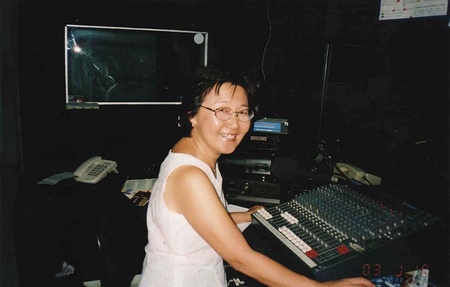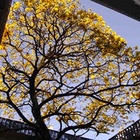“Ohayo Bom Dia! What a wonderful morning it is. This is Laura Honda, bringing you today’s program, full of spirit. Please enjoy.”
For seven years, this is how my day started. Rain or shine, I commuted to the radio station and truly enjoyed my time there.
It had been a life-long dream of mine to work as a radio host.
Back in the 50s, there was a question that adults often asked us kids: “What do you want to be when you grow up?”
Pretty much all of the girls answered “a school teacher,” but my answer was “a radio announcer.”
The neighborhood kids couldn’t even imagine what type of work an “announcer” does. Listening to the radio was already a part of my daily routine, and I loved listening to children’s stories and the Brazilian pop station.
After graduating from college, while working at a bank, I also worked part time at the biggest radio station in town, but I quit after about 2 years. I had decided to pursue a career as a teacher of Portuguese language and Brazilian literature instead. But somewhere deep down in my heart, I hoped I would be able to work in radio if given a chance.
After retirement, I moved to a city 550 kilometers away from Sao Paulo, and there I began to volunteer at the local radio station.
I was in charge of a program that played Japanese songs and discussed Japanese culture. There were 3 different shows, each with a unique theme, and broadcasted each show for 2 hours, once a week. On Mondays we aired “Ohayo Bom Dia”, a show centered on Japanese music, fables, history, news, and cuisine. On Tuesdays was “Ohayo Bom Dia - Gospel”, airing hymns and bible discussion in Japanese. Wednesdays was “Ha, Ha, Hallelujah”, a gospel and bible program for children. This show was done only in Portuguese, and the other two were broadcast in both languages.
All three shows had unique content, so we had a variety of listeners. Words cannot even begin to describe the many wonderful experiences I was able to have.
I always felt that music knew no borders. Our hearts can be moved without any words. Music can energize and empower us, and I’ve experienced this feeling many times.
Yuzo Kayama’s “Kimi to itsumademo” [Forever with you] was a popular song that became #1 on the charts. Every time we aired the song, the phones would start ringing non-stop. “I don’t know Japanese, but I love this song!” “What a wonderful song! Where can I buy the CD?” “I want to listen to it again”…we received so many requests.
Another song was Chu Kosaka’s “Kimi wa subarashii” [You are wonderful], a gospel song. It was the theme song for “Ohayo Bom Dia - Gospel”, and many listeners told us that the song brought them comfort. Almost all of them didn’t know any Japanese, and it made me think, “Music is amazing!”
But the song loved by everyone above all others was “Ue o muite arukou”. This song became world-famous, and we chose it as the theme song for “Ohayo Bom Dia”. One day, as we were airing the theme song, we received a phone call: “Hello? I work out on the road, and I always listen to your show while traveling in my car. Right now, I’m calling from a public phone. I love this song. I want to dedicate this song to my wife and kids.” In Brazil, dedicating a song to your family is a very poplar thing to do among the listeners.
After music, the storytelling and Japanese news was also popular. Somehting funny happened when we aired the legend of “Urashima Tarō”. As the story approached the conclusion, an avid listener named Thelma received a visitor at her home, and missed the end of the story. “Can you please air the story again?” she requested. However, the second time we aired “Urashima Tarō”, she was called over by her neighbors to go help with something, so Thelma missed the end of the story again. On the third time, she fell asleep! After three weeks and the fourth broadcast, Thelma finally got to listen to the conclusion of “Urashima Tarō” and exclaimed, “What a sad story!”
To be continued...
© 2011 Laura Honda-Hasegawa





